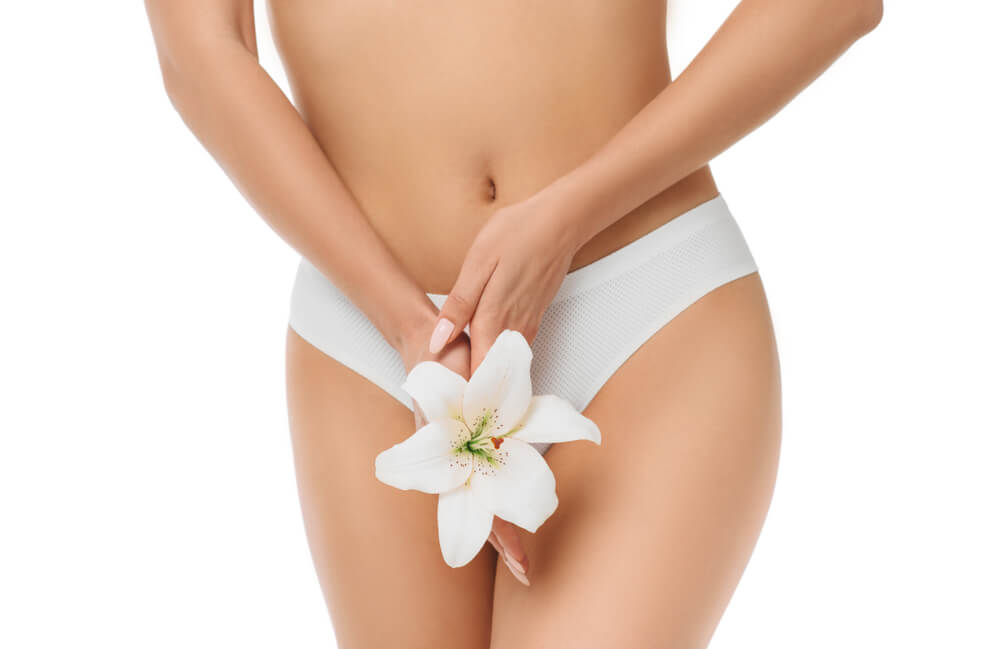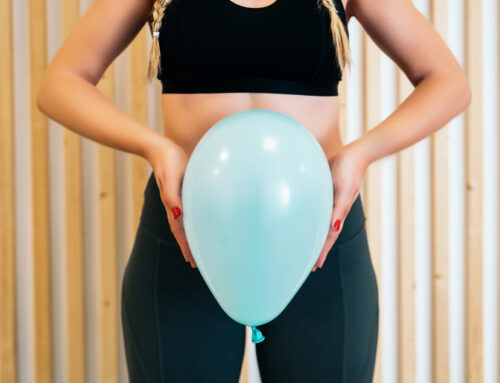It’s not that difficult to maintain good vaginal health. The most important thing is to listen to what your body tells you and go for regular visits to the gynecologist. In all honesty, when it comes to how to maintain a healthy vagina (and vulva), there are no special requirements or products involved. The most important thing is to have proper vagina hygiene practices and know the basic do’s and don’ts for optimal vaginal health.
The Difference Between Vagina and Vulva
Before we start discussing how to maintain a healthy vagina, it’s important to understand what’s a vagina and what’s a vulva. Surprisingly, a lot of women tend to confuse the two.
Essentially, the vulva is the outer part of the female genitalia, the part that is visible. That said, it consists of the vaginal and urinary openings, urethra, labia, clitoris, and pubic mound.
On the other hand, the vagina is not visible. It’s basically the inner canal that connects the vulva and cervix and then the uterus. Women menstruate and give birth through the vagina.
How to Maintain a Healthy Vagina
Now that we differentiated vagina and vulva, we’ll go through the best practices for optimal vaginal health.
1. Keep Your Vulvovaginal Area Clean
When best vagina hygiene practices are concerned, you should make sure to clean the vulva every day with warm water and, if you want, a very mild and gentle soap that’s hypoallergenic. Never use a loofa or washcloth on your genital area, just your hands.
On the other hand, the vagina is self-cleaning. Therefore, don’t try to clean the inside of your genitals.
In general, you should never use scented soaps and gels or harsh scrubs on your genitals if you want to have a healthy vagina. These products can mess up the natural pH balance, triggering an infection.
Now, thei mportant thing here is to know your natural smell. The vagina is not a flower, nor is it meant to smell like one. But, if you suddenly notice that your natural odor has changed and the smell is even accompanied by discomfort, itching, and/or burning, make sure to schedule a visit to your gynecologist. You can always count on Dr. TaiSenChoy-Bent for all your gynecological matters and concerns.
Furthermore, the biggest rule of proper vagina hygiene is to first wipe in the front and then in the back after using the toilet. The opposite can easily move the bacteria to the urethra, thus triggering a urinary tract infection.

2. You Should Stop Douching
Douching might seem like a good practice for good vaginal health, but it’s actually quite the opposite.
If douching has been prescribed to you as a treatment for some vaginal health issue, then it’s perfectly fine to practice it for the amount of time the doctor recommended. However, you shouldn’t try to douche on your own as a part of your regular vaginal health routine. This can only affect your pH levels and wash away the good bacteria in the vagina. That way, you’ll be more prone to infections and irritations.
3. Practice Clean Sex
It’s only natural to want to enjoy sex to the fullest. Therefore, it’s perfectly fine to make the most out of available products for sexual pleasure. Still, if you want to have a healthy vagina and vulva, you should pay attention to some things. For instance, if you plan to use a lubricant, make sure to avoid those that contain potentially harmful ingredients such as:
- Scents, dyes, and flavors
- Non-natural oils
- Petroleum products
- Glycerin
- Parabens
Also, make it a point to assess the condom ingredients as well. Those that contain spermicides can disturb vaginal pH balance and cause irritation.
If you want to go between vaginal and anal sex during intercourse, always use a new condom between the switches. That way, bacteria from the anus won’t be transferred to the vagina, and vice versa.
After the intercourse, remember to urinate in order to flush out potential bacteria that got on the urethra. It would also be beneficial for your good vaginal health to take a shower or simply clean the vulva with warm water and mild soap, and then pat the area dry.
4. Choose Appropriate Clothing
Vaginal health also depends on the clothes and materials you choose to wear. In order to maintain a healthy vagina, it would be best to opt for breathable clothes that keep the vulvovaginal area dry. Too much moisture can promote yeast growth which could then lead to infection.
In terms of underwear, the ideal material is cotton as it doesn’t hold moisture as much as other materials such as polyester or silk. When the cut of the underwear is concerned, the ideal is the women’s boyshorts. Try not to wear thongs as they can transfer the fecal matter to the vagina easier.
It’s also important to avoid tight-fitting garments as much as possible. After finishing your workout, always change your underwear and clothes so that you don’t spend too much time in damp and sweaty garments. The same goes for swimsuits if you don’t plan to return for another swim.
5. The Matter of Pubic Hair
Pubic hair has its purpose. Namely, it protects the sensitive skin of the area as well as acts as a kind of shield for potential viruses and bacteria that could reach the vulva. That said, deciding not to shave the pubic hair while keeping it properly cleaned and maintained has no health risk whatsoever.
However, all women are different, and as such, they have different views and experiences when it comes to pubic hair. That said, some ladies find it preferable to completely remove their pubic hair, either by waxing, electrolysis, or shaving, as they believe that it actually contributes to bad odor and moisture accumulation in their case. Some women find that the best practice for them is simply to trim their pubic hair with scissors. Others prefer to keep their pubic hair completely natural.
The most important thing when pubic hair removal is concerned is to be very careful with the removal process itself. It may not cause infection and irritation per se, but razor burns, ingrown hairs, and razor cuts might. If you want to remove pubic hair without shaving, make sure that you never use hair removal creams, as they can be very harsh on the vulvovaginal area.

6. Proper Nutrition and Supplementation
As 70% of the immune system is located in the gut, keeping a healthy GI system also plays a crucial role in keeping your vaginal flora healthy. As such, women should consider adding probiotics and yogurt to their diet. Leafy greens like kale and spinach are also great options, just like oranges and berries.
Vaginal probiotic supplements may also help improve vaginal flora. Lastly, women should avoid the excessive intake of fatty foods, sweets, and soda to keep their digestive system optimal.
To maintain optimal vaginal health, make sure to avoid scented products in your hygiene routine, such as pads, tampons, and soaps. When you’re on your period, you should change your pads/tampons four to five times a day and wipe/wash the area regularly. Drinking enough water and introducing probiotics to your diet, such as yogurt, can also keep the bacteria and odor at bay. However, the most important thing for your good vaginal health is to go to regular gynecologist appointments. If you’re looking for a gynecology expert you can fully trust, feel free to reach out to us at Fern TaiSenChoy-Bent M.D., LLC.










